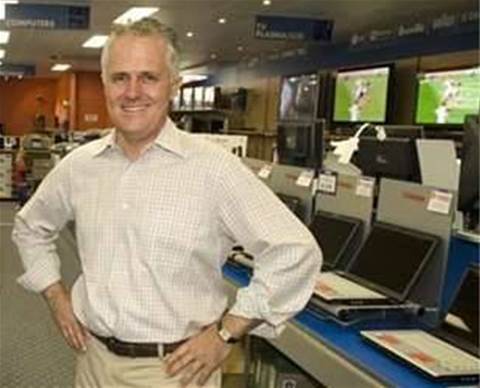Shadow communications minister Malcolm Turnbull clashed with a lead of Google's US fibre-to-the-home project in Paris last night over whether faster broadband would benefit consumers.
In a panel session at the Broadband World Forum in France, Turnbull dismissed the "technological exuberance" surrounding current global FTTH projects such as the National Broadband Network and Google's project.
He said they ignored the "very hight cost" such networks placed on the public and private sectors.
"I could justify Google doing this at a loss in terms of the Kansas City project because the over-the-top provider has got a massive interest in people building these networks. That's why Google is a very big supporter of the NBN in Australia," he said.
"But that's like a trucking company saying, 'If i was a politician, I say I'm going to build a ten-lane freeway all around the country which would be toll free and available only for trucks'. All the trucking operators would say, 'Malcolm, you are a visionary'."
Google's general manager of access, Kevin Lo, conceded in a keynote speech delivered to the conference yesterday that the search giant could not yet pinpoint the applications consumers would use over symmetric gigabit connections the company had begun rolling out to premises in Kansas City, Missouri and Kansas City, Kansas.
But, Lo said, the applications and users would come with time, provided broadband take-up was encouraged through affordable services.
"We believe we're on the right side of history, we believe that speed matters and working with partners and communities to find these new applications was very important to us," he said.
"From our standpoint at Google, we're about moving the web forward. We have product engineers that are frustrated they have applications that don't work in consumer households because people don't have the speeds but, more importantly, they don't have the uplink speeds."
The mayors of the Kansas cities had recently begun forming teams with an aim to identifying and developing the applications that would best yield the gigabit speeds expected to be achieved under the Google initiative.
Turnbull and Lo agreed on the necessity for facilities-based competition, with the Google manager calling for fewer government regulations worldwide to spur greater deployment of FTTH.
He said the spurious terms and conditions placed upon the company in its search for a candidate city to roll out fibre had been a major factor in its decision-making.
In his own keynote speech, Turnbull pointed to China as more actively seeking private sector competition in telecommunications, which he contrasted with the Australian government's decision to fund the NBN using tax payer's money.
He continued to assert that the monopolisation of infrastructure under the NBN could only lead to higher prices for end users.
"The reality is, particularly for politicians such as myself, taxpayers' money is a very scarce resource, just like shareholders' money is and you've got to get the balance right," he said.
"If you can make a buck out of it, Kevin, God bless you and let us all know the secret."






_(21).jpg&h=142&w=230&c=1&s=1)






.jpg&w=100&c=1&s=0)








_(1).jpg&q=95&h=298&w=480&c=1&s=1)


